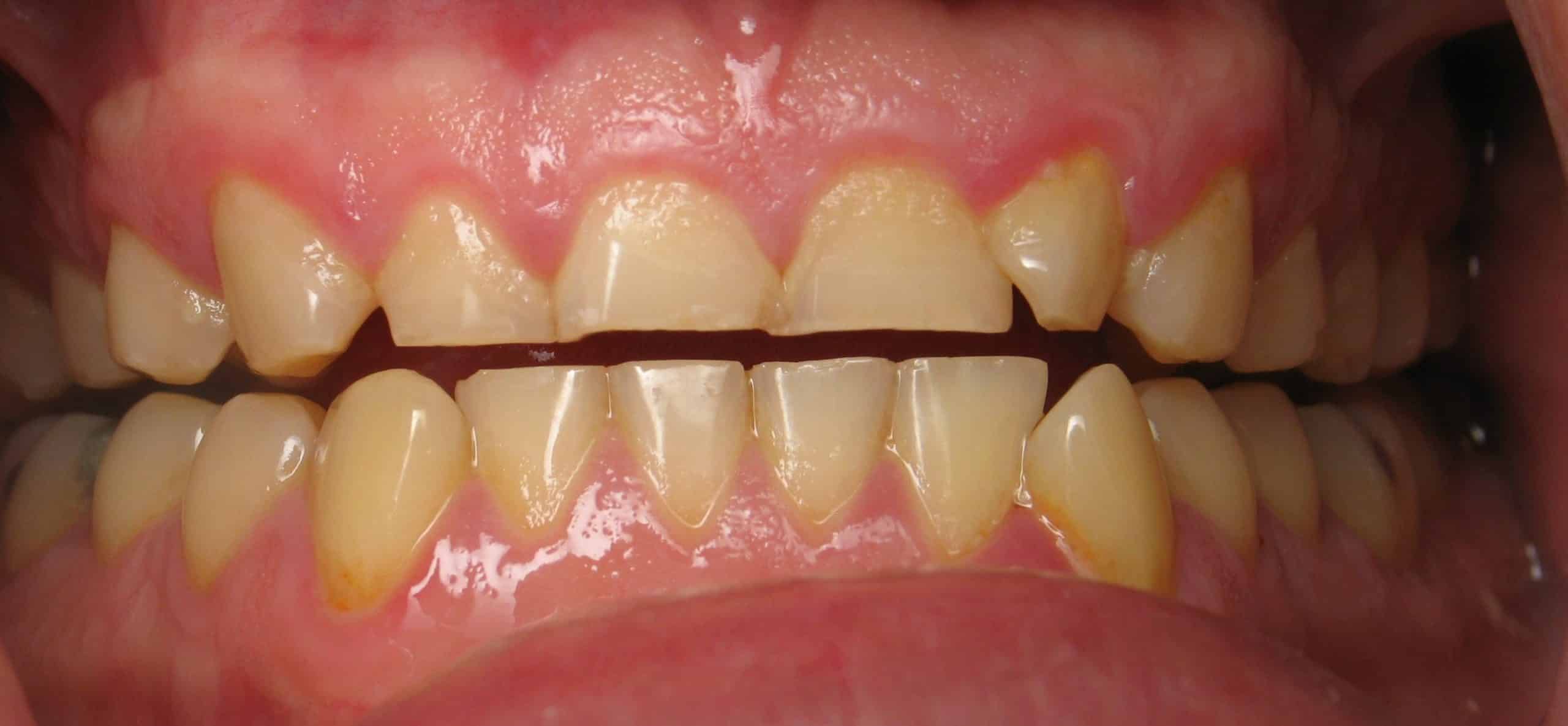Teeth grinding can be detrimental to dental implants. In fact, it is one of the worst things and can actually cause the implant(s) to loosen and fail.
Our jaws can generate a tremendous amount of power. Typically we don’t use or need all that force to chew foods. Grinding of teeth is different than clenching. Grinding typical happens at night when you are asleep. Because you are asleep, you put much more force on your teeth than you would EVER do when you were awake. Grinding is the side to side, front to back gnashing of teeth. Clenching is tightly squeezing your jaws together for short times but is very intense.
Over 90% of patient that clench and or grind have no idea they do it! Most people have no symptoms. The teeth ground shorter and develop stress fractures and often break.
Grinding or clenching on implants usually causes the bone at the top of the implant to melt away. Porcelain teeth chip or fracture and dentures supported by implants are broken in half. Something has to give…it is either the implant in the bone or the teeth made on the implants.
Think about this. Grinding wears away enamel. Enamel is the hardest structure on the human body…it is harder than bone! If one can grind enamel away, you could easily break the implant teeth or cause bone loss.
It is important to have the bite checked routinely on your implants. If you or I suspect a grinding or clenching habit, I may recommend a device called a night guard. This device needs to be made a certain way. Avoid store bought night guards, as they can worsen the situation or easily damage the jaw joint.


I’m so confused to either get another implant or bridge.I grind my teeth a lot and I think that’s what made my eight years implant to fail 🙁 I’m so disappointed to myself.
The bite is an extremely important part of engineering for long term success. Without proper distribution of the bite force into the bone indicating results in peri-implantitis-bone loss around the dental implant-which is very aggressive and happens quickly sometimes. Oftentimes people don’t have an implant that is long enough, wide enough or have enough implants to support the bite. My suggestion would be to see somebody who is highly experienced and has very good long-term success.
I am having a problem eating foods and am presently grinding my implanted teeth on top on my lower teeth. I don’t believe that the dentist put the correct upper implants of the correct size to work with the lower teeth . The upper implants feel to big for my mouth and I am constantly grinding them. Do I have to for them to be corrected by the dentist or is she just suppose to correct the problem. I lost one small lower as it is.
You need to discuss all of this with your dentist. Typically we work out all of this in a temporary phase prior to final delivery especially if it is a large case. The temperatures are made out of plastic composite or PMMA. I use these to act as a prototype to test drive the teeth before the final ones are made.
This is not always necessary but some cases really need it.
Good luck
As you said, enamel is the hardest surface in the body, far more durable than implants or composite fillings, so grinding your teeth can cause them to wear and break. I like your suggestion about getting custom made mouth guards. Most people grind their teeth while they sleep, which makes it impossible for them to be conscious of their doing so. However, a mouth guard can help keep your teeth from touching each other.
Teeth grinding (also known as Bruxism in formal medical parlance) is a condition many people suffer from. Tooth damage is one of the most obvious dangers of teeth grinding. Stress fractures almost always occur eventually if the condition is not treated in its early stages.